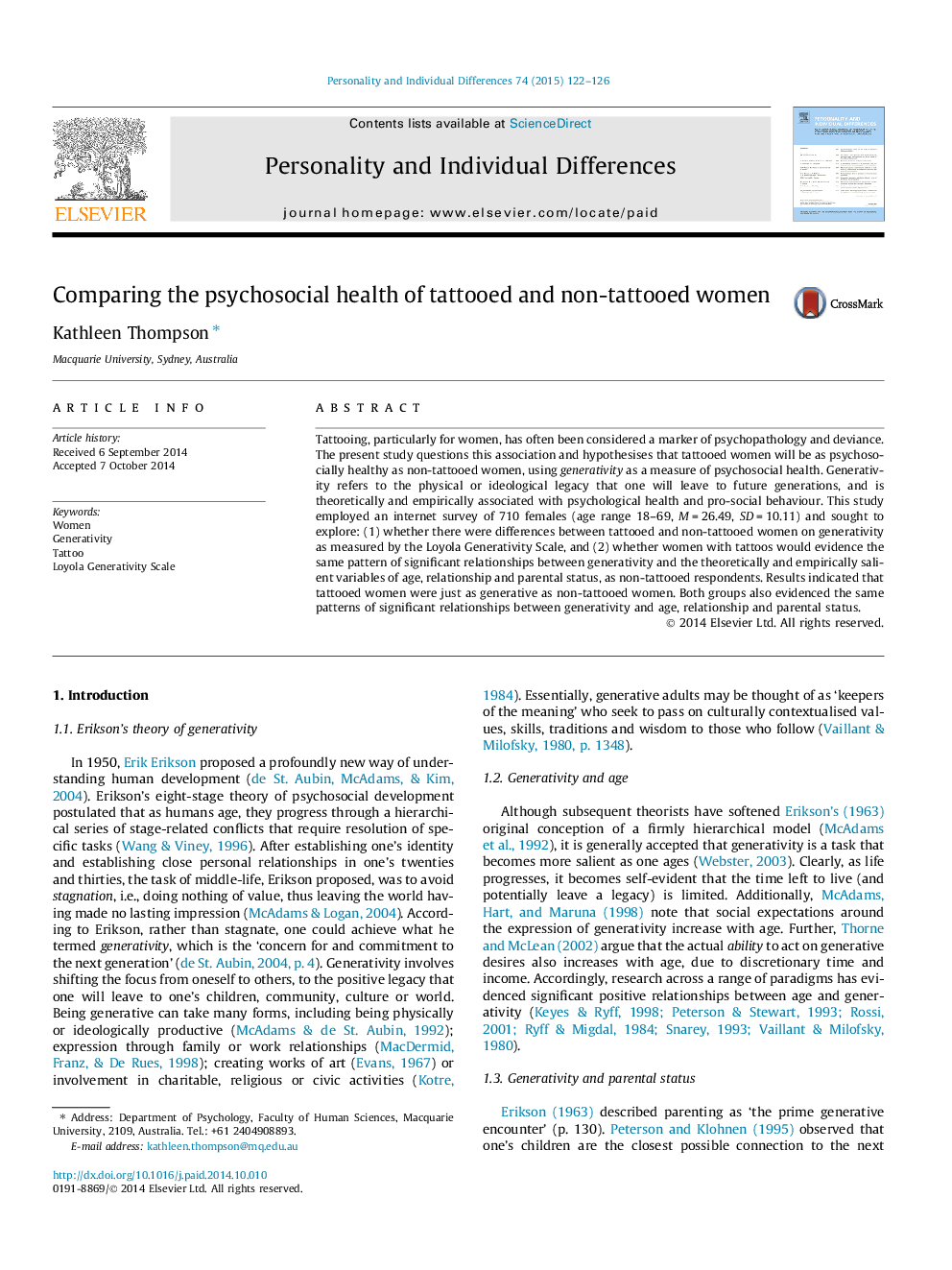| Article ID | Journal | Published Year | Pages | File Type |
|---|---|---|---|---|
| 7251930 | Personality and Individual Differences | 2015 | 5 Pages |
Abstract
Tattooing, particularly for women, has often been considered a marker of psychopathology and deviance. The present study questions this association and hypothesises that tattooed women will be as psychosocially healthy as non-tattooed women, using generativity as a measure of psychosocial health. Generativity refers to the physical or ideological legacy that one will leave to future generations, and is theoretically and empirically associated with psychological health and pro-social behaviour. This study employed an internet survey of 710 females (age range 18-69, MÂ =Â 26.49, SDÂ =Â 10.11) and sought to explore: (1) whether there were differences between tattooed and non-tattooed women on generativity as measured by the Loyola Generativity Scale, and (2) whether women with tattoos would evidence the same pattern of significant relationships between generativity and the theoretically and empirically salient variables of age, relationship and parental status, as non-tattooed respondents. Results indicated that tattooed women were just as generative as non-tattooed women. Both groups also evidenced the same patterns of significant relationships between generativity and age, relationship and parental status.
Keywords
Related Topics
Life Sciences
Neuroscience
Behavioral Neuroscience
Authors
Kathleen Thompson,
